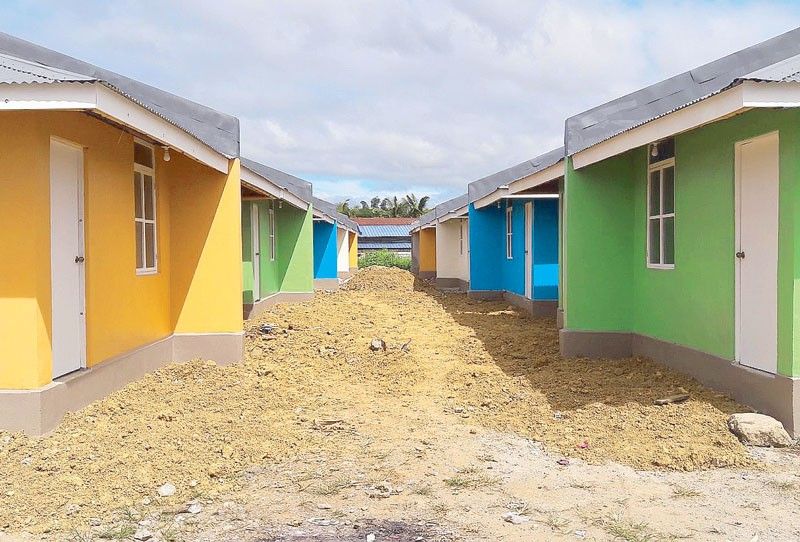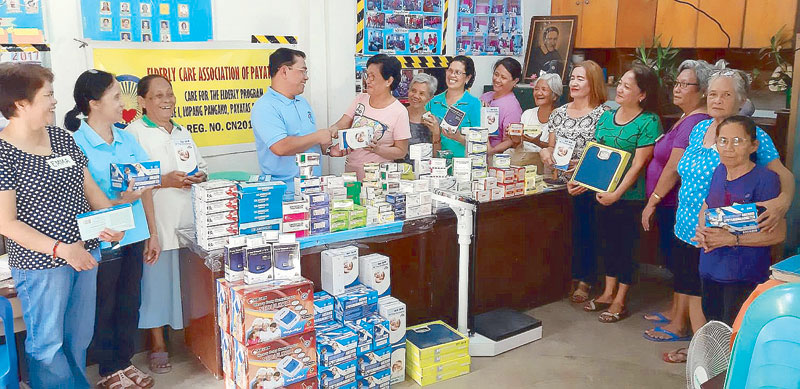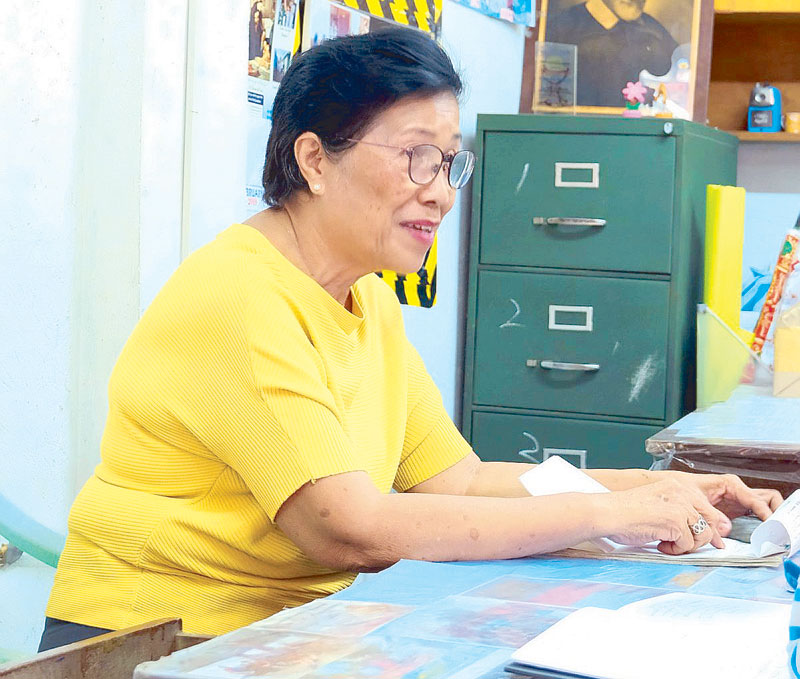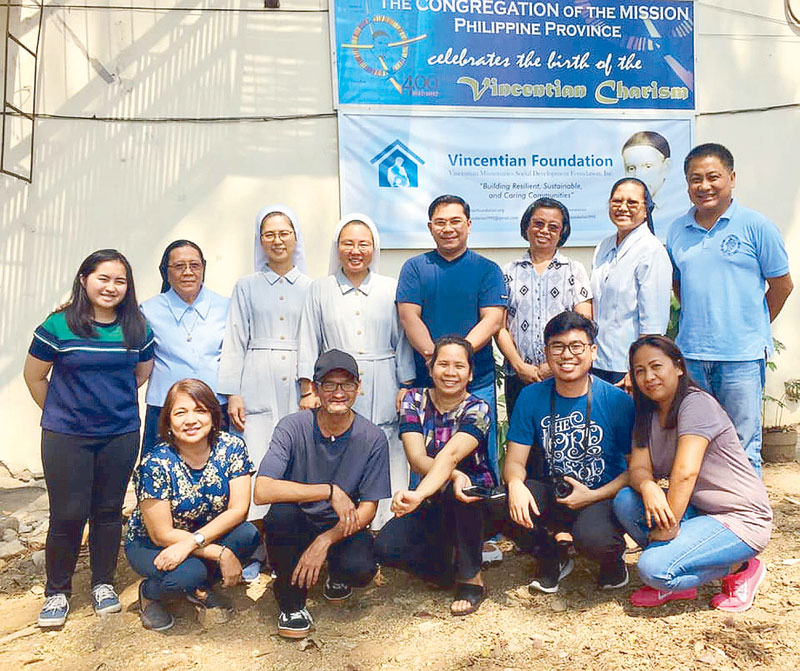Hope for the elderly, Homes for the homeless

MANILA, Philippines — She has a gentle and endearing smile. She talks with a mild slur, loves to draw, listen to pop music and watch shows on YouTube. She enjoys school just like any girl of her age, except that going to school is an everyday challenge. Wheelchair-bound, 15-year-old Althea was born with cerebral palsy. Althea’s father is a construction worker while her mother Rebecca was forced to quit her job as househelp to be Althea’s full-time caregiver.
With a wrinkly smile, Nanay Rebecca beamed as she shared her daily routine with Althea. After a hearty brunch of steamed rice and boiled vegetables dipped in soy sauce (sometimes freshly picked okra from their tiny garden), mother and daughter commute to school via two jeepney rides, which cost them over P40. Why not a tricycle ride that would bring them directly to school, I asked. It’s twice the price and it’s beyond their budget. Besides, she’s still strong, Nanay Rebecca maintains. She can still manage to carry Althea to her wheelchair, push her around then carry her again two flights up to the second floor of Justice Cecilia Muñoz Palma School in Payatas, Quezon City where Althea goes. Then she comes back for her in the afternoon, doing the same routine of tackling two flights of stairs, to the jeepney stand all the way back home to Barangay Silangan in Quezon City where they live. On weekdays, rain or shine, this is their regular schedule.

ECAPI members,?led by Nanay Olive, receive medical supplies at one of the organization’s activities
While Nanay Rebecca was not complaining, I felt painfully bothered. Althea is a growing girl and Nanay Rebecca is not getting any younger.
Nanay Olive, on the other hand, is a 60-year-old cancer survivor. She lives in Payatas, once known as the biggest garbage dumpsite in Quezon City. While traces of the old community are still apparent – boys and men segregating metal scraps along narrow alleys, a recognizable view of a giant mound of plastic from a distance and a slight stench in the air when strong winds blow – Payatas no longer mirrors the same picture portrayed in a mystery thriller I once read, Smaller and Smaller Circles, penned by award-winning Filipino novelist F.H. Bataclan. Far from its erstwhile image, Payatas has since transformed into a more livable and relatively peaceful community.
Nanay Olive coyly grinned as she recalled the time when she was chosen to head the ECAPI or Empowering Care for the Ageing Program Inc. in Payatas. As a community leader, Nanay Olive helps organize programs and activities for the elderly in their barangay. Some of these are livelihood projects, social events, wellness programs or fund-raising campaigns for fellow elderly who are sick or who have passed away. “It’s a voluntary job,” Nanay Olive cheerfully shares in Filipino. Her work comes with a fulfillment of being able to help empower her fellow elderly by creating meaningful opportunities that allow them to become a community for one another.
Recently, I had the chance to do some work with the Vincentian Foundation. We visited the bamboo housing in Barangay Silangan and the elderly center in Payatas where I met Althea and Nanay Rebecca, Nanay Olive, Nanay Pining and other grateful beneficiaries of projects by the foundation. It was on these visits when I heard and understood their incredible stories of overcoming adversities, clinging on to faith and living a life of immense gratitude. It was also through these experiences that I cemented a greater appreciation of the charism and work done for the marginalized sector of our society by religious organizations like the Vincentians.

Nanay Olive talks about ECAPI’s activities
Thirty years ago, Fr. Rene Ruelos of the Congregation of Mission (CM) also known as the Vincentian Missionaries initiated a sponsorship program simply aimed at providing the basic needs of families in mission areas in Pili, Camarines Sur and eventually in Payatas. Back then, Payatas was known as one of the biggest garbage dumpsites in Metro Manila with a thriving community of scavenger families. What initially started as an organization that centers on scholarship programs for children and livelihood assistance for families has evolved into a full-fledged foundation that focuses on five priorities: the Bamboo Housing Project in Barangay Silangan Quezon City; welfare and services programs such as care for persons with special needs and the elderly care program, both in Quezon City; Land Acquisition and Home Development in Bolusao, Samar and Barangay Awao in Compostela Valley, Mindanao and the indigenous eople, specifically the Subanen tribe in Misamis Oriental.
The foundation now formally known as the Vincentian Philanthropic Development Office (PDO) is under the stewardship of its executive director, Fr. Gerald Borja, CM and his lean but able team of full-time workers and volunteers. Perennially struggling with sustainability issues, Fr. Gerald saw the need to formalize the foundation into a PDO. Being a PDO allows the foundation to function in more organized operations allowing greater transparency among benefactors, partners and stakeholders regardless of whether they are individual or corporate donors. On the part of the beneficiaries, being deeply connected with their donors help uplift their self-esteem and make them realize that enhancements in their economic and social conditions are not simply because of dole outs. Beneficiaries of the bamboo housing, for example, helped build their houses and have a bigger responsibility in the maintenance and upkeep of their community.
In the long run, the PDO aims to develop and nurture long-term, systematic and meaningful relationships with its donors and partners through their contributions, which are not only in terms of funds but also through goods, time and sharing of talents and resources with the beneficiaries.
This is what Fr. Gerald has to say about them: “From a very personal perspective, that is, in terms of relationships, slum dwellers are the people I seldom personally encounter and spend very little time with. Yet, I see them all over the place, everywhere I go here in our country. From another perspective, slum dwellings are places where a high concentration of people with all kinds of social issues are oftentimes left unaddressed. It is in these places where we see many poor, single parents, women, people with special needs, malnourished children, elderly, broken marriages etc. In these same places we see rampant use of illegal drugs, high incidence of illegal gambling, prostitution, human trafficking and different kinds of illegal activities. Here, we see a great number of people deprived of their basic rights and necessities such as food, clothing, shelter, health, education, etc. They have difficulty or have no access at all to different government financial and social services and the society in general.”

Fr. Gerald Borja, CM (standing, right) and his team at the Vicentian Foundation.
Focusing on the needs of the homeless is at the heart of the Vincentian spirituality. Fr. Gerald continues to passionately do the rounds to elevate the predicament of what he refers to as “the most vulnerable sector of our society – the homeless, the slum dwellers.”
That is why when given the chance, Fr. Gerald tells their stories and speaks about their plight not only in local gatherings such as at the annual convention of the Association of Major Religious Men Superiors in the Philippines (AMRSP) but also in forums outside the Philippines like the inaugural conference of Famvin Global, the Vincentian Family Initiative on Homelessness, held in Rome a few months back. On these occasions, Fr. Gerald reveals alarming statistics, sheds light on and shares some of their best practices in their work for the homeless. This he does with the hope that other organizations will be equally inspired to follow their path, or at least partner with them in their undertakings.
For example, the Bagong Silangan Kawayan houses, the Vincentians’ resettlement project built in collaboration with corporate and individual sponsors located in a three-hectare property, serve as alternative, eco-friendly, gender sensitive and affordable houses using bamboo as a main construction material. There are now homes for 21 families, with children of varying disabilities like Althea, or elderly family members such as Nanay Pining, who considers her bamboo house her retirement home. Before moving to Bagong Silangan, Nanay Pining and her family subsisted by the dumpsites in Payatas while other families dwelt in slum settlements by creek sides, under bridges and other danger zones. Now they live in clean and comfortable houses, made of an indigenous material like the bamboo and designed to suit the needs of the likes of Althea, who dreams of becoming an interior designer someday. Why interior designer, I asked? “Kasi mahilig po akong mag drawing at hindi po ako makalakad,” she answers wryly without a tone of resentment for her inability to walk. As she sketched her dream house, Nanay Rebecca’s eyes sparkle with joy and hope.
At the ECAPI Center in Payatas, Nanay Olive enthusiastically shares the typical activities that keep her and her fellow elderly occupied. They participate in regular seminars and trainings for gerontologists (they have to focus on their wellness, she says), visit homes of fellow elderly or undergo skills training such as how to make dishwashing soap and rugs. Radiant at 60 and blessed with what she calls her gift of a new life, Nanay Olive cheerfully shares exciting activities everyone looks forward to. They organize fund raising events such as the Mrs. Valentine, renewal of vows for couples celebrating more than 25 years of marriage or zumba sessions. The last activity always comes with a sweet reminder for participants to be mindful of their age and move accordingly: “Mga galaw na angkop sa matatanda,” as Nanay Olive thoughtfully calls it.
Nanay Olive believes they are each other’s second family, each other’s source of joy, strength and inspiration. Their lives are being gradually transformed. And the activities they are currently involved in are testaments of how wonderfully God touches and molds them as they go through their inevitable journey of ageing gracefully and, most importantly, with dignity.
In faraway Barangay Awao in Compostela Valley and Barangay Bolusao in Lawaan, Samar, the Vincentians with assistance from its benefactors and the local government have likewise acquired parcels of land for townsfolk who have been displaced by Typhoons Pablo and Yolanda a few years ago. In Misamis Oriental where the Subanen Tribe is, the foundation and its volunteers are working closely with the tribe’s leaders and elders through ongoing activities aimed to revive, preserve, rediscover and reconnect the townsfolk with their cultural heritage.
Along with Althea, Nanay Rebecca and Nanay Olive, these groups of individuals remain the reason why the Vincentians and their volunteers tirelessly serve and impart their precious gift of time, effort and resources. Fr. Gerald contends the journey is going to be long. The mission to help and make a difference in the lives of their beneficiaries is challenging, while the task to engage different stakeholders to be part of their advocacy is herculean. But he and his team are full of hope. They believe that guided by a shared spirituality and uncompromising efforts, their endeavors will be undoubtedly meaningful and, in the long run, fulfilling. Holding on to the same positive attitude he had six years ago when he first said yes to this advocacy, Fr. Gerald is optimistic that “when giving becomes a positive experience, the culture of giving will snowball.”
- Latest
- Trending


















